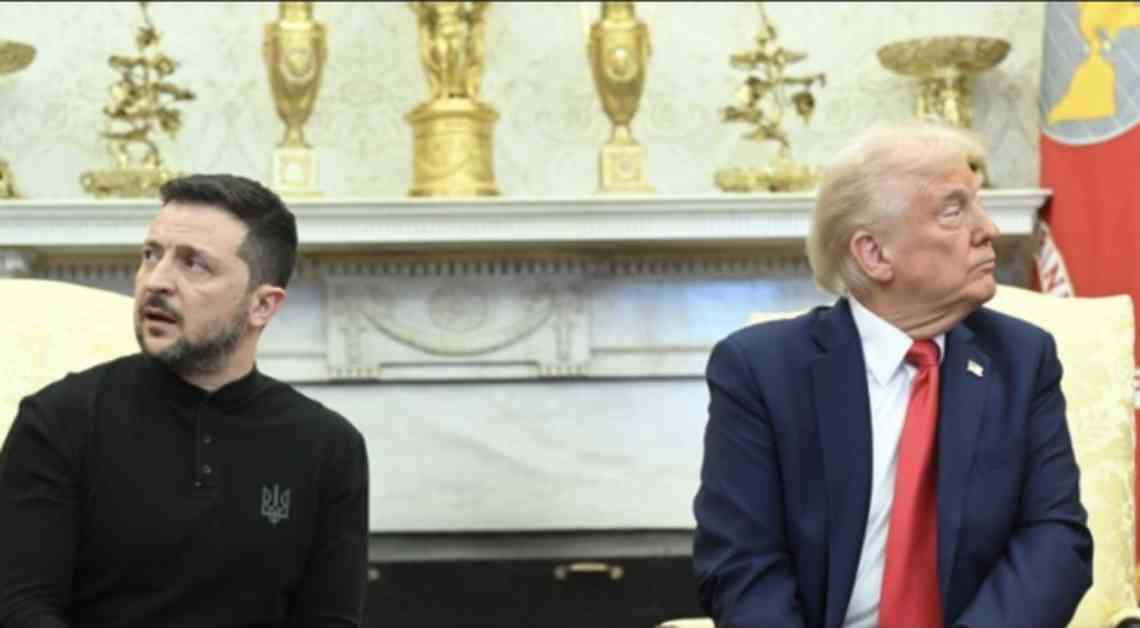Donald Trump and Volodymyr Zelensky, the President of Ukraine, engaged in a heated clash during a televised meeting in the Oval Office, causing a stir among global leaders. The exchange between the two leaders, marked by confrontational language and accusations, took center stage as they sparred over diplomacy and the conflict in Ukraine. The atmosphere grew tense as the discussion unfolded, with Vice President JD Vance intervening and accusing Zelensky of disrespect and ingratitude towards the United States.
Trump-Zelensky Shouting Match Takes World Leaders Aback
The meeting quickly escalated as Trump openly berated Zelensky for his supposed lack of gratitude and readiness for peace, while accusing him of disrespecting the United States. The tension reached a boiling point as Trump, Vance, and Zelensky engaged in a verbal back-and-forth, each defending their positions and questioning the others’ motives.
Zelensky, visibly frustrated, attempted to explain the challenges faced by Ukraine during the conflict, highlighting the sacrifices made by his country and expressing his appreciation for the support received. However, his efforts were met with skepticism and criticism from both Trump and Vance, who continued to press him for gratitude and acknowledgment of the US assistance.
As the heated exchange continued, with accusations and interruptions flying back and forth, Trump asserted his belief that Ukraine would not have been able to withstand the conflict without US military equipment and support. Zelensky, on the other hand, emphasized Ukraine’s resilience and determination to persevere in the face of adversity, despite feeling overwhelmed and unsupported by the United States.
Expert Insights on Diplomatic Disputes and International Relations
The clash between Trump and Zelensky sheds light on the complexities of diplomatic relations and the challenges faced by world leaders in navigating international conflicts. Experts in international relations and diplomacy emphasize the importance of constructive dialogue, mutual respect, and strategic communication in resolving disputes and fostering cooperation between nations.
Dr. Emily Richards, a renowned political analyst, notes that public confrontations between world leaders, such as the Trump-Zelensky clash, can have far-reaching implications for bilateral relations and global stability. “Diplomatic spats and verbal altercations in high-profile settings can erode trust, escalate tensions, and undermine efforts to find peaceful solutions to conflicts,” says Dr. Richards.
While disagreements and misunderstandings are inevitable in diplomatic interactions, experts caution against resorting to inflammatory rhetoric and personal attacks, which can hinder progress and perpetuate animosity between nations. Effective communication, active listening, and a willingness to engage in constructive dialogue are essential components of successful diplomacy and conflict resolution.
In conclusion, the Trump-Zelensky clash serves as a stark reminder of the challenges and complexities inherent in international relations, underscoring the need for diplomacy, cooperation, and mutual understanding to address global conflicts and promote peace and stability. As world leaders continue to navigate complex geopolitical landscapes, the ability to engage in respectful dialogue and find common ground remains crucial in building a more peaceful and prosperous world for all.

















